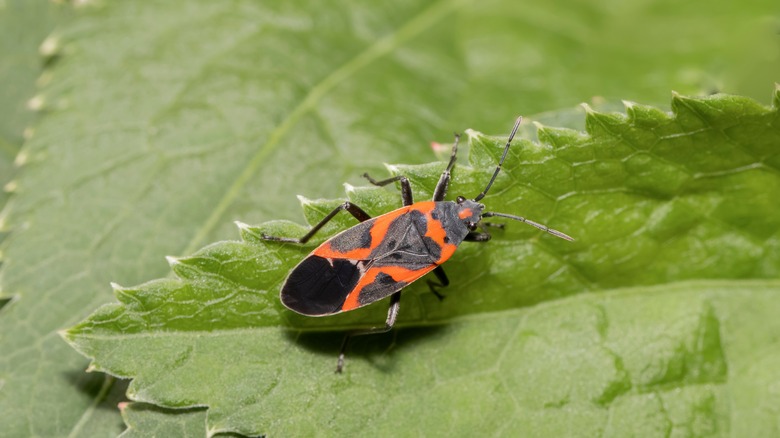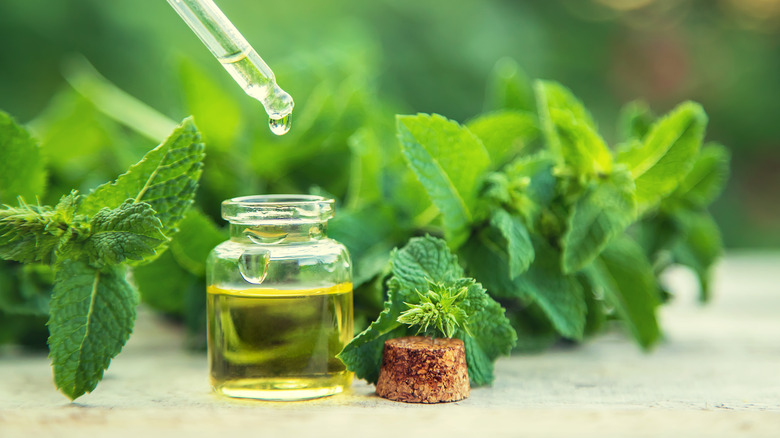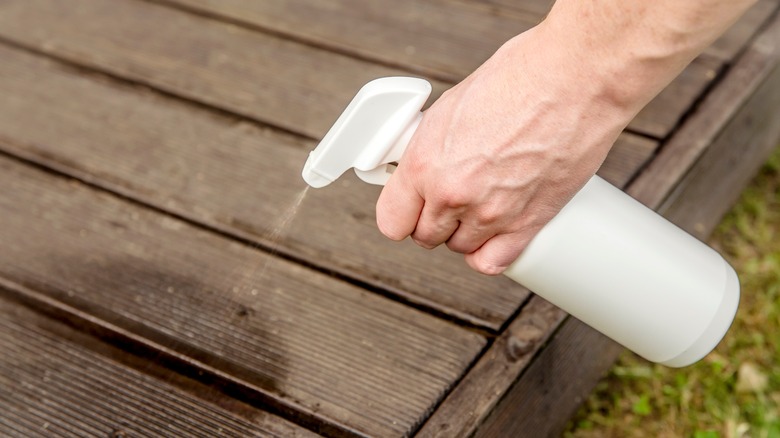Kick Boxelder Bugs To The Curb With This Fragrant Scent
It might surprise you that peppermint can act as a highly effective natural insecticide that actually smells good. Believed to have originated in Europe, this perennial herb is a versatile asset that spices up culinary dishes and offers therapeutic benefits. One of peppermint's most potent components is menthol, a compound known for its bug-repellent properties that have promising effects on boxelder bugs. Although not harmful to humans, the presence of these shield-shaped insects is disruptive, and they usually become noticeable as the temperature goes up. They can infiltrate your home in large numbers, gravitating toward warm areas like windows or heating systems. Once inside, they're notorious for staining surfaces with their excrement. This includes walls, curtains, and furniture, requiring intensive cleaning efforts. Also, should you resort to crushing them, they emit an unpleasant stench, adding another layer of inconvenience.
In short, boxelder bugs contribute to an uncomfortable and unclean living environment, making them unwelcome guests in any household. Therefore, finding an effective, safe, and environmentally friendly solution to this problem becomes imperative. And that's where peppermint comes into play, offering not just bug-repelling properties but also a pleasant aroma, making it an all-around beneficial choice. The menthol in peppermint serves as a sensory irritant for boxelder bugs, making your home an unfriendly, confusing environment that causes these insects to seek more hospitable areas.
How to use peppermint against boxelder bugs
When using peppermint against boxelder bugs, you have two primary routes for maximum benefit: growing peppermint plants or using peppermint oil. If you opt for the cultivation route, it's good to know that peppermint is a relatively low-maintenance plant, which makes it ideal for both seasoned and novice gardeners. It thrives best in USDA hardiness zones 3 through 11, providing a wide geographical range for its cultivation. Peppermint prefers well-drained, loamy soil and tolerates partial shade and full sunlight. When planting peppermint, consider placing it near the entry points of your home or around its perimeter to create a natural, bug-repelling barrier. The plants can also be placed in pots near windows or balconies for added protection. As for maintenance, peppermint requires minimal care. Regular watering is sufficient for keeping the plant healthy.
Peppermint oil is your go-to option if you're looking for a more immediate and concentrated solution. To use peppermint oil as a bug repellent, fill a spray bottle with water and add a few drops of the essential oil. Make sure to shake the mixture thoroughly to ensure even oil distribution. Once ready, spray it generously in areas where you've noticed boxelder bug activity. Since peppermint oil contains a high concentration of menthol, its efficacy is significantly amplified, providing a potent natural remedy against these pests. However, a word of caution: always opt for moderate use and keep an eye out for any signs of discomfort in your pets
Maximizing peppermint's bug-repelling power
Interestingly, menthol doesn't just act as an effective repellent on its own; it can also play a collaborative role with a chemical insect repellent to magnify its impact. According to a 2019 study published in Molecules, menthol enhances the efficacy of certain insecticides, like bendiocarb, a carbamate-based product. Bendiocarb is generally used to control a wide variety of pests, and it works by affecting the nervous system of insects. When added to the mix, menthol amplifies the impact of bendiocarb, making it even better at eliminating or repelling unwanted critters. The exact mechanism of how this synergistic relationship works is still under investigation, but initial research seems positive.
Regarding safety and environmental responsibility, menthol differentiates itself from synthetic repellents like DEET. While DEET is a widely accepted and effective repellent, it has several downsides. Among these are potential skin irritations and an unpleasant chemical odor that lingers. Additionally, DEET poses environmental toxicity risks. In contrast, menthol is generally considered safer for humans and the environment, with a far lower toxicity profile. Plus, let's not underestimate the value of the fresh aroma that menthol introduces. As you aim to keep your home bug-free, menthol also contributes to a cleaner-smelling, more pleasant living space.


